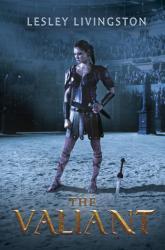
The Valiant follows the journey of a Celtic warrior from a princess to a slave to a famed gladiatrix. Throughout the story struggles with family, love, and trust. The warrior Fallon faces fierce rivals and feuds within Rome and even her ludus. Not long after arriving in her ludus she finds someone she thought was dead acting as master of the ludus. Eventually she meets Cesar the mastermind behind the fall of her home and the owner of her ludus.
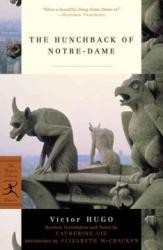
The Hunchback of Notre Dame is about four men who are captivated by a mysterious gypsy dancer. The story begins on a holiday where a play is going on until everyone becomes distracted by the gypsy girl dancing in the square. This is where we meet Esmeralda the gypsy and Gringore the playwright. Many things happen until Esmeralda ends up meeting Pheobus, a soldier, who is very egocentric, when he saves her from the deformed bell ringer - Quasimodo - and a priest named Claude Frollo. Esmeralda is soon accused of witchcraft and is sentenced to be hanged. Fortunately, she is able to find shelter in Notre Dame before that can happen. Many want to kill her, but some want to save her.
I had to read this book for school, and my English teacher recommended it. And the first chapter was not very interesting so I became skeptical, but at the end, I thought the book was really good. There are some parts where the author goes into detail about a location to better help set the scene, and this is where I struggled to focus on the book, but you should push forward because the story line is worth it. The Disney movie did not do this book justice and there is some adult-themed content in the book so I would not recommend this book to middle-schoolers or younger. I do think that sooner or later, everyone should at least give this book a try because it really made me think.
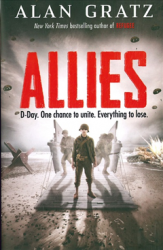
Alan Gratz has given us a gripping tale in the book Allies. The invasion at Normandy during D-Day is seen from the viewpoint of a number of allies who's stories weave in and out of the fray during that first day of fighting. True to life characters, from soldier to resistance fighters, and and edge-of-the-seat story line will compel readers age 9 -15 to keep turning pages.
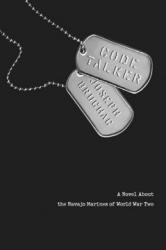
Code Talker is about a Navajo (Native American) who uses his language to help win the war. It is World War Two and the United States of America is fighting against Japan. Every code the Americans have used to send secret information has been cracked by the Japanese. The Navajo language is one of the hardest languages to learn. The Americans, knowing that, chose Navajos to make a secret code to use at war. Ned Begay (the Navajo) and his friends risk their lives, going into war, making their own secret code, and saving millions of American lives.
I really liked this book. There were some slow parts of the book where I got a bit bored. There were other parts where I couldn't put the book down. I would recommend this book to people who like war books. This book has juicy details and is based off of a true story.
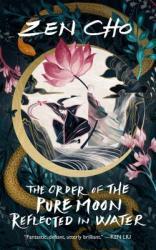
The Order of the Pure Moon Reflected in Water follows a nun who joins a group of bandits trying to protect a religious relic from those who would destroy it. It's a novella, so that's really most of the book, but Zen Cho crams a ton of character development and plenty of plot into this short little read. The two main characters are so well drawn, and I absolutely fell in love with them. The banter between the bandits is loads of fun - I laughed out loud on multiple occasions. There are plenty of fight scenes. I got to learn the word wuxia (think Chinese martial arts heroes). It's very rare that I want a book to be longer, but I so wanted more of this. I'll be checking out Cho's backlist work, Sorcerer to the Crown. 4 stars - that was very good.
Thanks to Tor and Netgalley for the eARC, which I received in exchange for an unbiased review. The Order of the Pure Moon Reflected on Water is available now - put your copy on hold today!
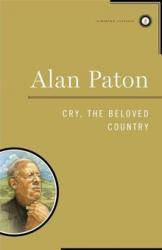
Cry, the Beloved Country is a very good novel. It depicts the lives of Reverend Stephen Kumalo and white landowner, James Jarvis, during a time of turbulence in their lives. All of the characters in the novel are extremely well written and the character development is superb. The conflict in the novel feels very realistic and thrills the reader. The moral decisions and emotions faced by the two protagonists feel very weighty and captivate the reader. Overall, the book is a great novel that I would recommend to anyone.
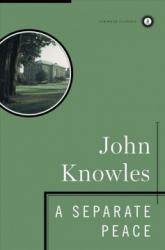
In his award-winning book, A Separate Peace, John Knowles writes a compelling story about a friendship at a New Hampshire boarding school. Revolving around the time of World War 2, two sixteen-year-old boys find themselves stuck between the brightness of youth and the solemn disparity of adulthood brought on by war. Gene is a studious serious loner who is the opposite of Phineas, the handsome and popular athlete. Although their personalities may be fundamentally different, they are best friends and roommates who do everything together. The book is narrated by Gene, the protagonist, who slowly begins to resent Phineas for his athletic talent and widespread popularity. In his mind, the once-trusted bond grows into a rivalry, and a rift begins to develop and separate them. Knowles writes the book in rich tones, laced with symbolism and meaning. As it dives deep into themes, this book is often required to be read in high school English class. It is admittedly slow moving, but still filled with marvelous lessons and morals. While I would definitely recommend reading this book at least once and praise it for its depth, personally, it was not incredibly engaging or life-changing for me. While A Separate Peace is an American classic, it lacks the emotional sentimentality that really makes a book stand out.
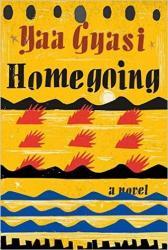
Homegoing by Yaa Gyasi follows two bloodlines, from half sisters in Ghana. Each chapter is about one descendant, switching between families somthat two chapters in a row are one generation. The book is well written and includes details that tie well into real life history or beliefs, and each chapter is in fact written in correlation with a major historical event. Through these tie-ins, the book is able to remain exciting, and each chapter could be read as a standalone short story. Each character has an important story, and is revisited in following chapters from their bloodline, either from memory or real life interactions between their children or grandchildren. In addition to the basic storytelling and history included in the book, there is also an aspect of mysticism, and values/traditions that are native to African culture, making it a solid read for increasing knowledge or understanding of Ghanan culture. For me, there are moments in the book that seem unnecessary to the general plot and sometimes vulgar, but they end up being essential in the consistency of the way the story is told. Readers are able to attach themselves to each character, story arc, anddetail, then follow them throughout the series of stories.
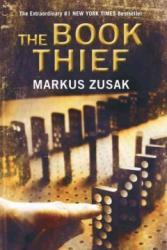
The Book Thief by Markus Zusak is my favorite book of all time. The story follows a young girl named Liesel Meminger growing up in Nazi Germany. Her love of books progresses throughout the plot, and the cast of characters she meets along the way help make the story the loveable masterpiece I know it as (personally, my favorite characters include Max Vandenburg, Rudy Steiner, and Hans Hubermann). This book is historical fiction, but I recommend it for most (if not all) readers. I typically read fantasy books, but I adore The Book Thief. The plot isn’t fast paced like adventure stories, and the events are on the ordinary side, but in my opinion the author does a brilliant job with descriptions and human connections within the book. Another reason I love this book is the use of the narrator--the way colors are described and the story is told is unique and wonderful to read. It’s a story about WWII told in a different perspective than other books we typically read at school, such as Night by Elie Wiesel or The Diary of Anne Frank. Even if you don’t particularly like the historical fiction genre, I would recommend giving this book a try. I first read it in 6th grade, but it is definitely not a story for just children. It is good for any age, and common sense media rates it for kids 13+.
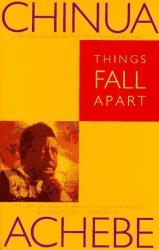
“Things Fall Apart” follows Okonkwo as he becomes a very successful man with many yams, several wives, and political power in Umuofia. The whole first part of the book focuses on his characterizing Okonkwo and showing what tribal culture was like. The author uses subtle references to Europeans to set up the main conflict of the book, European culture. Before the Europeans reach Umofia, Okonkwo accidentally kills a clansmen and is exiled. For the period of his exile, Okonkwo watches from the outside as his own village is changed radically by Christian missionaries.
Overall, I think this book is worth a read for the powerful theme, it wasn’t something I would want to read again because so much of the book was just about life in Umuofia, which was a bit mundane. Onkonkwo was also a pretty static character, there was no character development either. He just wanted to be the opposite of his father, was very strict, harsh, and closeminded. I did like the metaphors and proverbs in the book. I remember a metaphor that stood out in particular was, “Living Fire begets cold,
impotent ash.” I also enjoyed the later portion of the book where the Europeans missionaries arrive and the Onkonkwo provides a different perspective on the situation, and the theme is more clearly defined and developed.
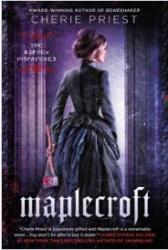
Everyone is has heard the macabre childhood rhyme about Lizzie Borden, and the gruesome murders that took place in Fall River, Massachusetts. Many have questioned the acquitted Lizzie's innocence, but few have explored if there might have been a very justified reason for Ms. Borden to wield her infamous axe. After the trial, the Borden sisters have retired to a more secluded life in their new home called Maplecroft. In a scenario worthy of HP Lovecraft, Cherie Priest uses her Fantasy/Horror/Mystery skills to shape a very different version of Fall River - one where people are starting to act "peculiar". Something from the ocean is calling to them, controlling them, and causing them to change, and commit murderous acts. Lizzie and her studious sister Emma, have seen something like this before, but they had hoped it had ended with their parents. Unbeknownst to the town, the Borden sisters have been keeping mysterious night creatures at bay, but now townspeople are becoming infected with some madness Lizzie and Emma suspect may engulf the town. Lizzie searches for answers in ancient lore, while Emma conducts her research in modern science. Can their combined efforts save the very town that shuns them?
This book is not for the faint of heart, as it details some ghastly fight, and murder scenes, but it is a fresh paranormal take on an existing notorious history. Maplecroft:The Borden Dispatches is available in book form, but can also be downloaded in eBook and eAudiobook formats.
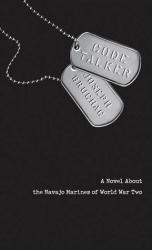
Code Talker is about the struggles and successes of a Navajo man entering the Marines. This book shows how worthless Navajo were treated by white men until they prove their value. I would have liked more detail but it does manage to describe the treatment of Navajo people around World War II. During the book the Navajos support each other as they each overcome their challenges with white men. The Navajo seem to be more civilized than white men in this book.
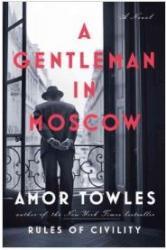
A Bolshevik tribunal puts Count Alexander Rostov under lifelong house arrest at The Hotel Metropol, a real luxury establishment located near the Kremlin, at the start of the Soviet Union. This man, who has never worked a day in his life, uses his considerable charm to carve out an existence while bearing witness to some very tumultuous decades. The people he meets, loves and opposes over the next 30 years help the nobleman determine a purpose in life under reduced circumstances. His evolution over the decades and his charm make the Count, who could have been insufferable in a different situation, someone many would befriend. This beautifully written second novel by the author of The Rules of Civility provides an interesting perspective on Soviet history, what it means to be a family and the reasons why to keep on living, even in a gilded prison.

Author Kristin Hannah has told interviewers that she scrapped an early version of The Great Alone that she wrote shortly after her career-making breakout bestseller, The Nightingale. Readers will be happy she started over because what the author delivered in 2017 was a compelling page-turner featuring Leni Albright. The strong-willed young woman was 13 when her father, a former Vietnam War POW struggling with Post-Traumatic Stress Disorder, moved her and her mother to the remote wilds of 1970s Alaska after years of wandering. Things are good when the weather is warm and sunny but then the long, frigid nights of winter descend on a fractured family not quite ready for those hardships. Leni grows up over the course of the novel, forged by the destructive nature of her parents' relationship, abuse, young love and the coming-of-age struggle to find a place where she belongs. Her resilience will be tested by her family and equally beautiful and dangerous Alaska, which takes its toll on those she loves in this award-winning novel (2018 Goodreads Choice Awards, Best Historical Fiction).
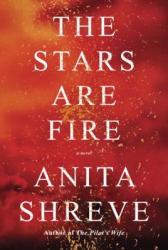
The largest fire in Maine's history is the catalyst of change for Grace Holland, who is left while five months pregnant with her two toddlers as volunteers, including her husband Gene, battle the 1947 blaze. They survive, even if their town does not. But their lives are forever changed. The 24-year-old awaits news of her husband's fate, while homeless, penniless and facing an uncertain future. Grace embraces her new freedom after years of a "sense of something wrong" and strives out on her own to support herself, raise her family and yes, find love. But then her husband returns, a scarred, bitter man. The tense pacing of the fire scenes are well done. But it is the story of a young woman discovering her inner strength while facing oppressive social mores that resonates in this final romantic novel by the author of The Pilot's Wife and The Weight of Water.
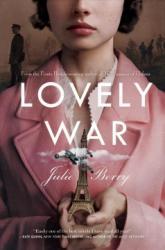
Lovely War by Julie Berry is such a wonderful book about two couples in the tragic and terrible days of WWI as narrated by the Greek Gods. I chose Lovely War because of my interest in historical fiction, especially historical
romances, and was not disappointed by this amazing story. The book centers on four young people who's path's cross during WWI-- British Hazel Windicott, a pianist, and James Alderidge, a would-be architect shipped off to war, Colette Fournier, a Belgian singer who lost her family at the hands of the Germans, and Aubrey Edwards, a black American solider in a jazz military band in a time of military prejudice and racial discrimination. Hazel and James meet and fall in love days before he is shipped off to the Front to face deadly combat in the WWI trenches. Distraught over the fate of James, Hazel, eager to help the war effort, enlists as a pianist at a volunteer job and meets Colette, a fellow volunteer. They become very close friends, and Colette begins to fall in love with charismatic Aubrey, who's jazz is redefining the world of music. What follows is a beautifully written novel about these four characters, their hardships, and loves.
This book is structured interestingly-- the story of these two parallel loves is narrated by the Greek goddess of love, Aphrodite, who tells the tale years later in the days of WWII to her husband, Hephaestus, god of fire and volcanos, and a few other gods to remind them what true love is and the transcendent power of love over war. The story is funny, heartbreaking, intense, and overall, beautiful. I felt as if I knew Hazel, James, Aubrey and Colette personally by the time the story is over. Julie Berry's prose is almost poetic in it's splendor, rich with meticulous descriptions about wartime France and Britain.
This book deals with elements of WWI I did not know about-- Germany's brutal and heartbreaking invasion of Belgium, and the prejudice and racial discrimination in the U.S army during WWI. I wasn't a huge fan of the
inclusion of the Greek Gods as narrators at first-- the story is strong enough to stand without it-- and until the very end, the purpose of the Gods in the story is almost irrelevant. I would have been interested to know if Berry ever had a draft of the story sans-Gods. However, reflecting back on the book, the Gods add another tier to the rich narrative, one that is appreciated more after the novel is over. That said, I know that that
inclusion was to make the book more accessible to teenage readers. Fans of Greek epics and the Percy Jackson series will enjoy the inclusion of them Gods.
The central romance and characters in this book are Hazel and James, and their relationship and connection is deeper than Colette's and Aubrey's until the end of the story. Berry dedicates more time to the relationship of Hazel and James, and it is the best story line as a result. I wish Colette and Aubrey's story would have been given more attention, as it is truly unique and unlike anything I've read, but the last pages of the book focuses solely on them which I enjoyed.
This book never lacks action and is a very quick read. I often had to remind myself to slow down so not to rush through it! Lovely War is written for teenagers, but is just as accessible for tweens and adults, truly making it a book for all ages. Lovely War is one of those special books that you read and know that your perception of the world will be changed because of it. I cannot stress how much I recommend this beautiful book. It is a marvel of the historical fiction, romance and mythology genres that everyone should read.
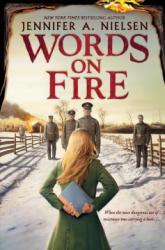
This is one of my favorite books. It is about a girl named Audra who tries to help her family but soon realizes how dangerous it can be. I like this book because it shows how people can be good in difficult situations. I picked this book because I like to learn about history but it also incorporated in what a day might be like during the World War II. The thing I enjoyed most about this book is how Audra doesn't know why her parents want her to drop off this book but she does it anyway because she trusts her parents. The ending has a great surprise of Audra's decision. (Reviewer grade:8)
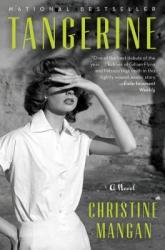
Tangerine by Christine Mangan portrays a toxic friendship between two former Bennington College roommates who are reunited in Tangier in 1956. One friend, Alice Shipley has been psychologically fragile since the childhood deaths of her parents in a house fire. She is married to John who does something secretive for "the government" in newly-independent Morocco. Lucy Mason, who connected with Alice through their shared orphanhood, has ditched a disappointing job and suddenly shown up at Alice’s door. She hopes to pry Alice from her dissatisfying marriage for a series of globe-trotting adventures they imagined in college. Both characters serve as flawed narrators -- Alice has a loose grip on reality while Lucy actively denies it.
The novel is at its best when Lucy tries to force a wedge between Alice and John, who is having an affair but depends on Alice's family trust to live comfortably. The romantic triangle turns this 2018 novel into a melodrama set against the intrigue of 1950s's North Africa. It's reminiscent of a slightly-hokey Hollywood movie of the same era. The book cover even features a woman of the period who could pass for actress Ingrid Bergman. That's the novel's charm (nostalgia) and its undoing (little original) in this enjoyable read.
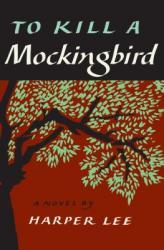
To Kill a Mocking Bird is about the racism and false accusations towards African Americans in the 1930s. The book is for a more mature reader because of the language used and some of the ideas that are introduced. I would highly recommend this book to anyone interested in learning more about the racial prejudice in the south in a book with a good plot. The characters are also relatable to a reader which I really enjoyed. Overall I think Lee did an amazing job writing this book.
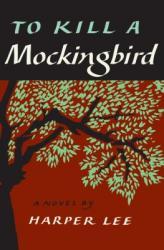
I read this book my freshman year of high school and there are some really interesting parts to this book involving suspense, murder and mystery but the book can be a little confusing if you don’t really pay attention. This book is very well written as it’s showed us how it was during this time period, giving us a whole perspective on how the characters were feeling at this point of time. The characters in this book do have to deal with a couple of problem which some don’t really go their way for example the whole situation with Tom Robinson. Although this book is well written it does carry some inappropriate language include a very discriminatory word, but you do have to keep in mind that this book was written in a very controversial time where saying the n-word wasn’t really frowned upon (not say that is was right). I wouldn’t recommend this book for children because it’s does deal with murder and rape but other than that it is a very good book.


